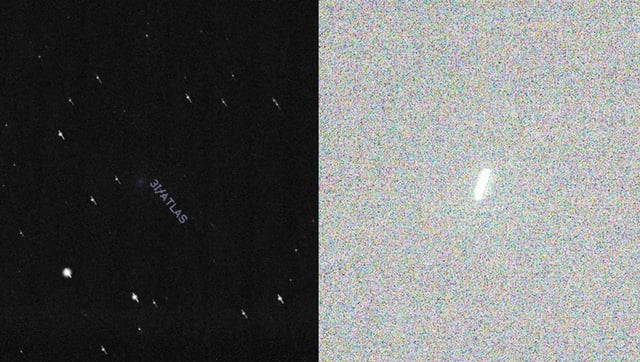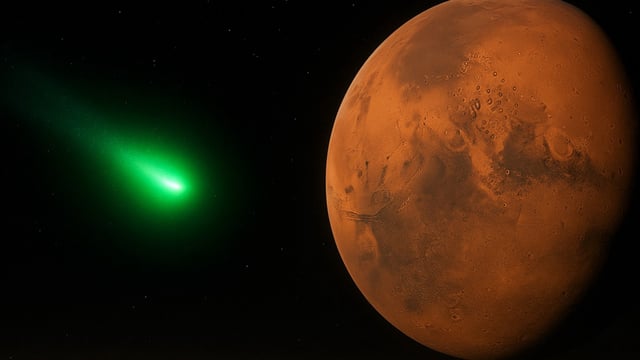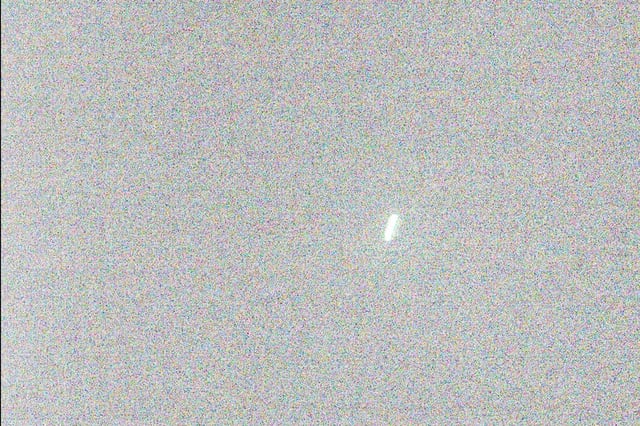Overview
- ESA’s ExoMars Trace Gas Orbiter captured a series of Oct. 3 images combined into a GIF that shows 3I/ATLAS as a faint moving dot, with the CaSSIS team noting the target was 10,000–100,000 times dimmer than typical scenes.
- A Perseverance Navcam photo from Oct. 4 shows a bright streak that NASA has not verified as the comet, and experts including Avi Loeb say the elongated form is consistent with stacked, long-duration imaging over roughly 10 minutes.
- Higher‑resolution observations from NASA’s Mars Reconnaissance Orbiter (HiRISE) were targeted and are expected but had not been released at the time of reporting.
- 3I/ATLAS is the third confirmed interstellar visitor and likely larger than prior examples, with several estimates in the 5–11 kilometer range and prior observations indicating a CO2‑rich coma.
- The comet passed Mars at about 18.6 million miles, will reach perihelion around Oct. 29–30, and poses no threat to Earth with a closest approach of roughly 1.80 AU; it should return to Earth‑based view in early December, with additional spacecraft observations planned.



